Bourbons, custard creams, and digestives are a staple of the British diet, often dunked in a piping hot cup of tea as an afternoon pick-me-up.
They’re also a surprisingly controversial topic – asking someone what their favourite biscuit is, whether a Jammie Dodger should be dunked, or whether a Jaffa Cake is a cake or a biscuit (answer here), will mostly likely result in a passionate debate that goes on far longer than a cup of tea can stay hot.
Conversations like this and their ties to everyday moments mean biscuits and cookies stay front of mind for many consumers. What’s more, with a pack of bourbons costing 61p at Tesco and a five-pack of in-store bakery cookies coming in around £1.50, they’re seen as an affordable everyday treat.
“Consumers have long reached for biscuits to accompany a drink in daily rituals, such as a tea or coffee break,” explains Miriam Bernhart, CSM Ingredients director category bread & pastry solutions, “and this occasion/trend is helping drive the sector.”
While the fan favourites aren’t going away, many consumers are looking for an added level of excitement, indulgence, or health, meaning cookie cutter ideas won’t cut it anymore.
As expected, their needs vary depending on the occasion and shopping destination.
“Within the artisanal channel, consumers are seeking cookies that offer a satisfying and indulgent experience, such as gourmet flavours, decadent toppings, or unique shapes and sizes. This requires bakers to use high-quality ingredients, such as single origin chocolates or spices,” explains Jonathan Adams, director of UK NPD at Baker & Baker which specialises in American-style sweet bakery items.
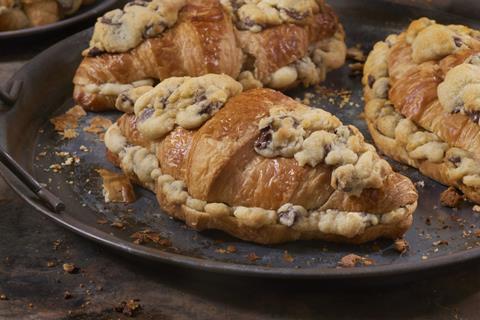
The perfect example of this is the viral crookie – a croissant filled and topped with chocolate chip cookie dough – which has taken the TikTok generation by storm.
Another rising through the ranks thanks to its over-the-top indulgence and texture appeal is the American-style stuffed cookie. As Kluman & Balter managing director Lawrence Watson explains: “Chunky cookies that are stuffed or have a gooey centre take indulgence to that next level.”
With a cookie dough base and fillings to play with, operators can be innovative, Watson adds. He suggests classic flavour combinations such as maple & pecan, walnut & chocolate or white chocolate & raspberry, as well as mini marshmallows for a s’mores inspired bake.
London-based vegan brand Floozie Cookies is among those to bring this trend to the attention of shoppers with its website and social media showcasing the crispy yet chewy outer shells, which are enticingly ripped open to reveal the gooey filling inside. Flavours include Black Forest, peanut butter & jam, pecan pie, and a limited-edition pumpkin spice with cream cheese.
Get Baked is another bakery which has tapped into demand for over-the-top sweet treats. While the Leeds-based business is best known for its towering 24-layer chocolate Bertha cake, it has also ramped up the indulgence and visual appeal on its cookies. Promising to be ‘chewy on the outside and soft in the middle’, its range includes Cinnamon Roll cookies with a vanilla swirl glaze, Birthday cookies laced with rainbow sprinkles, and Triple Chocolate ones with lashings of chocolate throughout the dough and on top.
Some are taking this even further, according to Watson. “Bakeries are getting experimental with their toppings by way of adding whole chocolate bars to their goods or icing with wild and wacky flavours,” he adds. “This opens up a whole host of opportunities for operators to link up with brands for exclusive limited-edition bakes to help boost visibility and create excitement for consumers.”
Mash-ups of confectionery and cookies is a trend which expands beyond the artisanal market and into the mainstream – and has for some time.
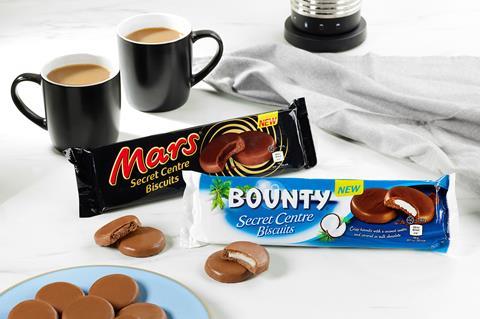
With a raft of confectionery brands in its arsenal, Mars Chocolate Drinks & Treats has long combined biscuits with its established brands. Nevertheless, the manufacturer aims to keep the innovation coming to ensure it is keeping up -– recent NPD includes Twix and Bounty Secret Centre Biscuits and Cookies with Chocolate M&M’S Minis.
Even biscuit behemoth McVitie’s got in on the action with a limited-edition McVitie’s Digestives Gold unveiled earlier this year combining Gold Bars with the classic chocolate digestive.
This trend can also be seen on Asda’s in-store bakery (ISB) shelves with Galaxy Cookies and Dairy Milk Shortie Squares among the cookies on offer.
Price, convenience, and innovation
ISBs are an important market for cookies which have become a “clear staple” in supermarket ranges, according to Baker & Baker’s Adams. But, unlike the artisanal market where some consumers are happy to pay upwards of £3 a cookie as a treat, retailers need to cater for tighter budgets.
“Convenience and price are probably the two biggest drivers at the moment,” he says. “Traditional, American style cookies are driving significant volume performance in the UK marketplace, as these can be paired with different flavours and styles. Retailers are also able to offer different price points within the category, with the addition of more indulgent flavours, levels of inclusions or visuals.”
Waitrose, for example, offers a range of on-trend flavours within its ISB cookie range including Double Chocolate & Brazilian Orange, Chocolate, Fudge & Pecan, and White Chocolate & Sicilian Lemon. Sainsbury’s, meanwhile, has a limited edition Belgian White Chocolate & Raspberry option as well as Salted Caramel & Belgian Milk Chocolate and Double Chocolate cookies.
Away from ISB, cookies are carving themselves out as a bonified dessert option.
Bernhart at CSM Ingredients points to the rise of “larger sharing cookies with supersize extra thick, deep dish or long formats” alongside standalone cookie desserts. Subway offers a live example of the long format having added a Footlong Cookie to its menu earlier this year while Chicago Town provides a deep dish format in the way of its recently unveiled Cookie Bars, packed with chocolate chips and marshmallows, designed to be heated at home for a gooey cookie experience.
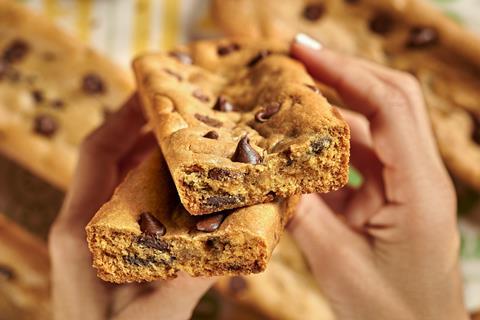
Gooey hot cookies or cookie dough have gained popularity in the out of home market and has been replicated by supermarkets looking to use them to tap into the ‘big night in’ experience. Marks & Spencer offers a Molten Cookie Dough as part of its Tom Kerridge Gastropub range while Asda has a Cookie Dough Dessert as part of its Take-Out Club line-up.
Health and happiness
These options may provide an indulgent and therefore occasional treat, but there are many firms looking to make biscuits healthier and reduce the everyday guilt associated with them.
“While consumers continue to appreciate biscuits as affordable indulgences that evoke a sense of nostalgia, they are increasingly seeking products that align with their values,” says Teoni Payne, head of sales & marketing at biscuit manufacturer Furniss of Cornwall. “This includes a preference for healthier options made with clean, natural ingredients, as well as a strong focus on value for money.”
However, they won’t compromise on taste, according to Sean Brassill, co-founder of JNCK Bakery. “They want something convenient, that feels like a real treat,” he explains, “but health concerns are putting people off some traditional cookies.”
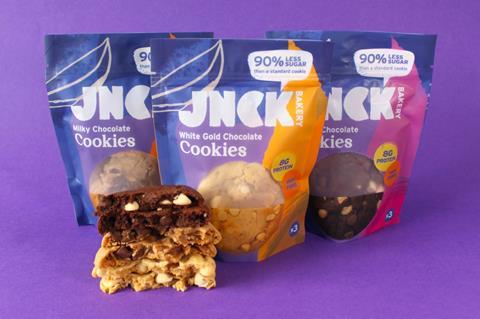
The business is on a mission to ‘redefine junk food’ and bring consumers biscuits with reduced sugar and fat, as well as increased protein content. Its cookies, which fall outside of the high fat, salt, and sugar (HFSS) scope, boast 90% less sugar than others on the market as well as 50% less fat and three times more protein and five times more fibre.
Notably, according to Brassill, there is “visible support from retailers” for healthier options as well as vegan offerings. JNCK was among the businesses to join the latest cohort of Tesco’s Accelerator Programme, which provides a year-long mentoring, learning, and development experience. It has also kicked off a crowdfunding round to support its recent Tesco launch and grow its product range.
Good Guys Bakehouse is another biscuit-focused business which has used crowdfunding to fuel retail growth, having raised £550k for the roll out of its wafer-based product range.
Headed up by Steve Monk, former general manager of United Biscuits, it is looking to blur the lines between biscuits and snacks by providing a product which is made with “real ingredients” that are lower in fat and calories too. The resultant Biscuit Melts contain five calories per melt and are available in paprika, cheddar, and black pepper options.
Monk believes many savoury biscuits, crackers, and crispbreads “seem wholesome and healthy, but savoury snack biscuits tend not to be healthy at all”.
Over the past month Good Guys Bakehouse has secured major listings with Sainsbury’s and Ocado, “attracting younger, healthier consumers to the aisle in the process”. “In fact, we’re one of the very few savoury biscuit brands over-indexing on younger, health-conscious shoppers (including young couples and healthy foodies) driving strong incremental category growth,” Monk claims.
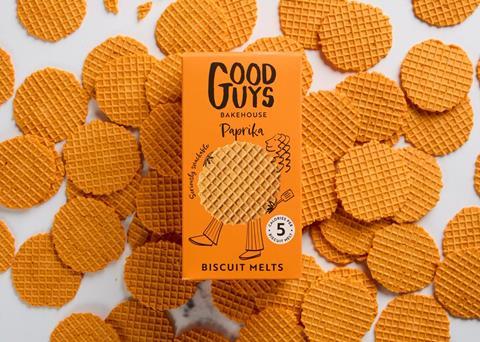
While these challenger brands are looking to make a name for themselves with a healthier option, category leader Pladis (whose brand portfolio includes McVitie’s and Jacob’s) is also conscious of the demand for healthier biscuits. It rolled out HFSS compliant Rich Tea Delights in 2022 alongside lighter McVitie’s Digestives Wholesense, which have 30% less sugar and 50% more fibre, as well as a reduced fat recipe for Jacob’s Crinklys.
That’s not to say McVitie’s has cut back on the indulgence. In fact, in some cases, it has ramped it up with its recently launched Signature Biscuits dubbed its ‘most indulgent range to date’. The range includes Caramel Chocolate Rounds with oozing caramel and Chocolate Cream Swirls with a smooth filling (offering a gentle nod to the aforementioned stuffed cookies).
If McVitie’s range is anything to go by, it’s unlikely the nation will shun everyday and even indulgent biscuits anytime soon, but there is a growing market looking for healthier options at times making ‘balance’ a key word in the marketplace.
“As consumers become more health-conscious, demand for biscuits with clean ingredients and lower sugar options is rising. At the same time, there is continued appeal for traditional biscuits that evoke comfort and nostalgia, providing a sense of familiarity and indulgence,” concludes Payne. “By balancing innovation in health-focused products with the classic qualities that consumers cherish, brands can effectively tap into both evolving and enduring preferences.”



















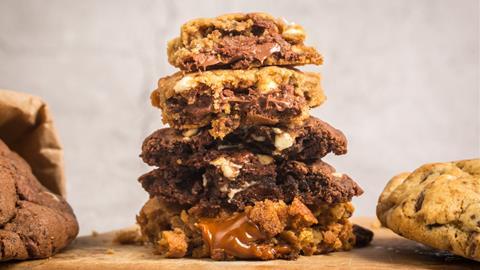
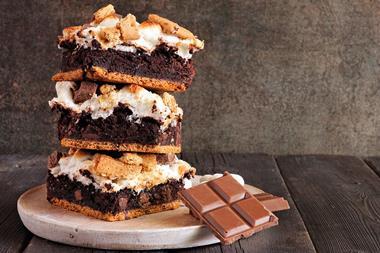
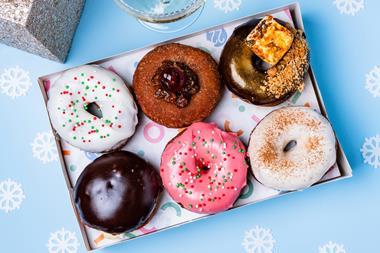


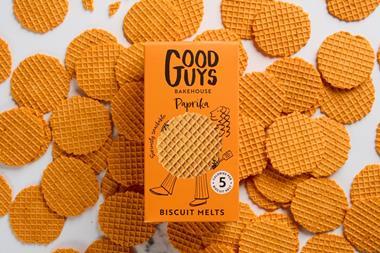
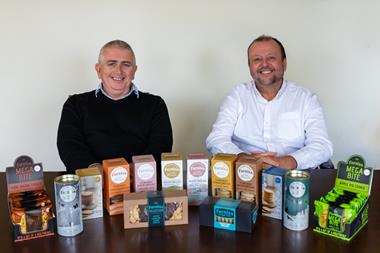
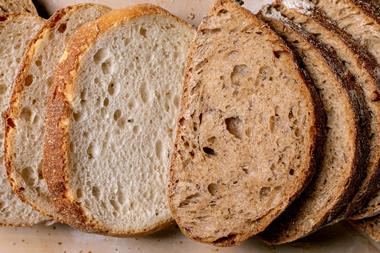




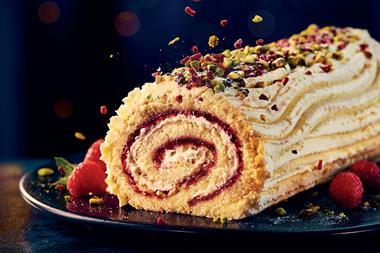

No comments yet